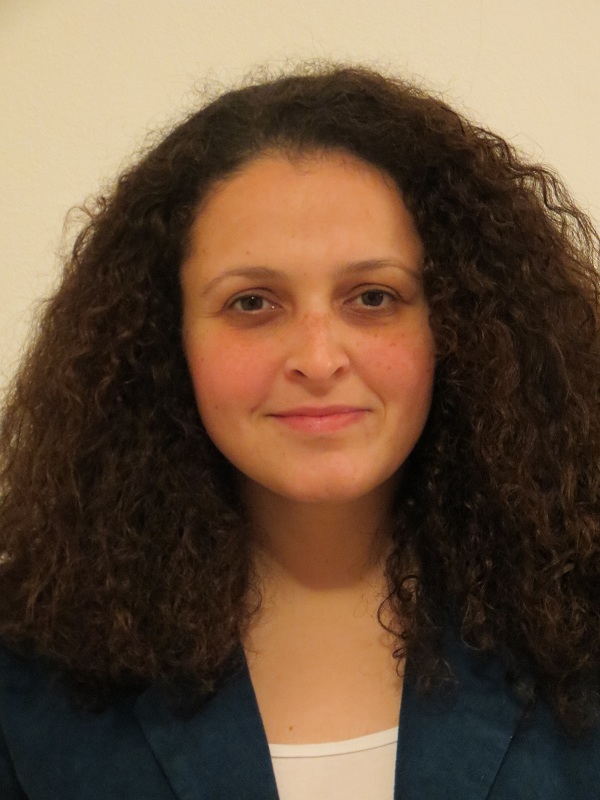
Now that the celebrations of Eid Al-Fitr are over, it is time for the revolting videos of sexual harassment to surface.
Videos depicting boys as young as 10 years old grabbing and slapping girls’ behinds while verbally harassing them have already spread online. A video showed two girls by the Corniche downtown cowering in fear as a mob of boys, mostly teenagers, surrounded them. The girls plastered themselves against a wall, as if trying to melt into the background in a failed attempt to keep away the marauding hands.
Others incidents were not caught on film, but one could catch them live in downtown Cairo; the most vile verbal abuse and physical violation to any passing women whether veiled, face-veiled or with her hair hanging down. If a woman is walking without a man, she is fair game.
For the harassers, it is a hunting game, a show of power.
The hunting game, at times, takes a dire turn. In Tanta, a young girl was killed while confronting her harasser who was in a microbus. The driver, according to eyewitnesses, tried to harass two girls. One of them blocked his path while trying to call her brother to come save them. The driver ran her over. Shorouk Al-Terby was her name and she died.
The harasser was arrested, only to be released, pending her autopsy’s results!
The reason Shorouk called her brother and not the police is that she knew that they would not help her; some of them may even harass her themselves. The Ministry of Interior, responsible for the police forces, maintains a culture of impunity that discourages most victims from reporting their crimes.
Harassment comes in different forms. In Eid, young boys took off their shirts and started dancing with knives in the middle of the street, causing most families to steer away from the area and women to flee. According to one of DNE’s young reporters, it’s an evolution of French tectonic dance in the poorer areas of Egypt. Knives in a public place are usually regarded as a threat in most countries, but it seems to be a different case with the Egyptian Ministry of the Interior.
The inability to walk safely on the streets is harassment.
In Cairo and Port Said, among other governorates, drug dealers have well-known spots where they sell their merchandise without being disturbed. One resident of Port Said told me the situation has become so bad that despite several class to the police, the patrolling officers pass by them on almost daily basis, taking no action.
Meanwhile, the situation in Upper Egypt is not any better with regards to the Copts living there. During this week alone, several churches in Minya were threatened and besieged by radical Islamists at times, and Morsi loyalists at others. Shops and building owned by Copts were marked by a black “X” causing the Coptic population to live in fear starting two weeks ago. Several Muslim families intervened, forming human shields around the churches in an attempt to protect them.
On Sunday, a church in Beni Suef was set on fire, and burned to the ground with all the books inside it. Another church was attacked in Port Said.
Again, the ministry of interior has remained inactive.
In Minya and Beni Suef several homes were burnt. No one is ever sure how such “incidents” are provoked; sometimes it is because of radicals, other times because of a family feud or a land dispute. What Egyptians know by heart is that when clashes begin, the police are nowhere to be found. People are left to maim and kill each other, while innocent bystanders turn into causalities. The police appear after the incident is over, making a wave of arrests as the crippled government denounces what happened and a “reconciliation session” is held where a sheik and a priest hug and kiss assuring patriotic unity.
This is how it happened in the Mubarak era and it seems Dr Beblawi’s government is walking the same path; a reconciliation session in Beni Suef was held on Monday.
Egyptians, with the lack of security, have started inventing their own form of popular protection committees. Several young men and women formed different groups such as Shoft Tahrosh ( I have seen harassment) who document and intervene when possible to protect the women harassed and the more corporal Tahrosh Bemothersh (Harass a harasser) where young men get the women out of the place and spray “I am a harasser” on the shirts of the culprits.
In many areas in Egypt, there are currently popular communities that stand on guard to protect their neighbourhoods. Others have invented a system of whistles to call for help. Richer individuals are hiring private security companies.
All these attempts, while admirable, cannot replace the lack of an active police force.
The problem with the current government, despite its strong economic and financial background, has a main problem: the lack of security caused by the ministry of interior.
Egyptians know that the ministry of interior is not doing its job. Officers are being paid from the taxes off their hard-earned salaries to do nothing. Every day the ministry issues a statement detailing arrests and drug confiscation, but the reality lived by Egyptians say otherwise.
The ministry has not changed much from Mubarak’s time. Several human rights organisations have called for its restructuring to ensure the rights of citizens while giving worthy officers their chance of leading change in the ministry, coupled with a monitoring body of police violations. This has fallen onto deaf ears.
Dr Beblawi’s government retains the same the ministry of interior, but instead of the overuse of power prior to 2011, it is now ineffective.
The first role of any police force is to ensure the safety of the streets, but in Egypt if many of the officers are not allowed free reign of power, they simply refuse to work and the current minister of interior is not helping much.
The question is, why is Dr Bebelawi choosing to ignore the much-needed reform of this ministry: the same ministry that has been the main reason for the downfall of Mubarak, SCAF and Mohamed Morsi.
Economic reform will not be achieved without ensuring security first. It is the basics of economics; how can a person with Dr Beblawi’s expertise not realise this?
Fighting harassment needs to start from the roots: education. But until people are educated enough to realise the psychological damage of this heinous act, law is needed to be enforced to protect women. In Singapore, known for its strict rules, a man accused of harassing three women in an elevator was sentenced to four years in jail and corporal punishment of nine cane blows. Several bleeding hearts may find this punishment is much, but how about the damage done to the women whose privates are grabbed in broad daylight and are currently afraid to walk down the streets?
The punishment sends a clear message to society: this acting will not be accepted, and will be severely punished. In Egypt, harassers in many cases walk free. A law is needed and it exists, but it needs to be implemented by the police and prosecution.
In sectarian clashes, Egyptians do not need reconciliation. They need police who come when called and arrest all involved, regardless of creed or ethnicity. Egyptians need their country to be ruled by law, not by sheiks, priests and outdated familial reconciliation sessions. A state of law has to prevail.
Dr Beblawi, this not the dispersal of Rabaa Al-Adaweya and Al-Nahda sit-in, where the situation is sensitive and several factors have to be weighed and re-assessed. This is simply security of Egyptians caused by a failing ministry.
Denouncing an incident is far from enough. Action has to be taken and swiftly.
The government was upset last week when described by several as a “quivering” institution. Well, if these incidents continue and Egyptians feel threatened, it will also become a former government, which is a shame because it has the financial vision to get Egypt out of its current crisis.
Protect the people first.

